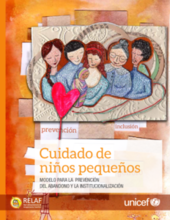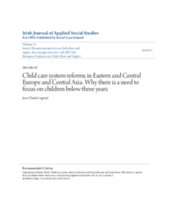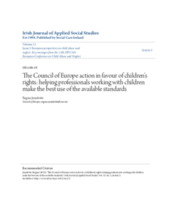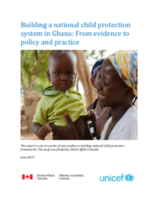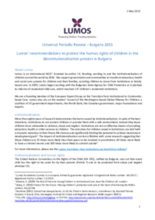Displaying 621 - 630 of 1025
INSPIRE is an evidence-based resource for everyone committed to preventing and responding to violence against children and adolescents. It represents a select group of strategies based on the best available evidence to help countries and communities intensify their focus on the prevention programmes and services with the greatest potential to reduce violence against children.
This paper describes the diversified approaches in Eastern and Central Europe and Central Asia to end the placement of children under three in institutions and prevent the separation of children from their families.
This article describes the current strategies of the “Building a Europe for and with Children” programme, a programme of the Council of Europe. The strategy focuses on four areas of action: promoting child-friendly services and systems; eliminating all forms of violence against children; guaranteeing the rights of children in vulnerable situations, and promoting child participation. A further standard is available on children’s rights and social services friendly to children and families for ensuring that children lacking or placed outside parental care are given adequate treatment.
The 2nd Annual Global Social Service Workforce Alliance Symposium was held on June 10, 2015. The full webcast, presentations, and summary are now available.
On June 2, 2015, the USAID Center on Children in Adversity/Displaced Children and Orphans Fund hosted a panel discussion event with the CPC Learning Network to mark the tenth anniversary of the Network.
This case study is part of a UNICEF global initiative, undertaken in collaboration with Global Affairs Canada, to document national child protection frameworks in five core programming countries; this report describes the activities and findings from UNICEF's exploration of Ghana's national child protection system.
In this executive summary, the Truth and Reconciliation Commission of Canada provides an introduction to the use of residential schools for aboriginal children in Canada, presents an overview of the Commission’s activities, describes the history and legacy of these residential schools, and outlines the challenges of reconciliation, including 94 recommendations, or “calls to action” for reconciliation in the field of Child Welfare among many others.
In an effort to support practitioners to address some challenges of trying to undertake quality research, a group of child protection networks and organizations - the Community Child Protection Exchange, the CP MERG, the CPC Learning Network, and REPSSI - came together to produce this joint newsletter reflecting upon some groups’ successes and challenges working on child protection research and M&E, including working with a limited budget in low-resource settings.
In this paper, Lumos reviews Bulgaria’s national strategy on deinstitutionalisation, adopted in 2010, and provides recommendations for ensuring the rights of children in the process.

